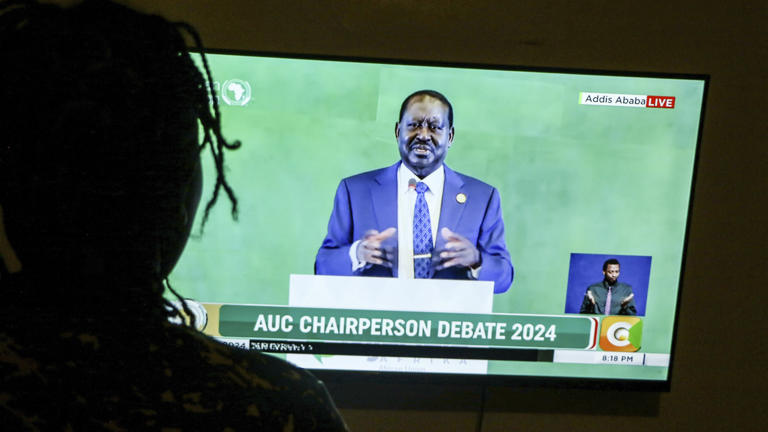
Charles Muchoki | Africa Guardian
Africa’s leadership landscape is set for significant change in 2025, with key leadership transitions in two major continental organizations—the African Union (AU) and the African Development Bank (AfDB). These changes will unfold amidst global and regional political shifts, with African diplomats navigating a challenging landscape of logistical hurdles and internal tensions to secure their preferred candidates.
The AU is poised to select a new chair for its Commission in February, following Moussa Faki’s departure after his term ends. In June, the AfDB will appoint a new president, as Akinwunmi Adesina steps down after two terms. These leadership transitions are happening in the context of Africa’s evolving political climate—marked by growing anti-neocolonial sentiment, military coups, and rising Pan-Africanism—while global powers, particularly the U.S. and Europe, turn inward.
The AU Commission Chair Race
The AU Commission chair role remains constrained by political realities, as heads of state retain significant influence over foreign policy, reducing the chair’s ability to drive change. Recent controversies, like Faki’s handling of Israel’s observer status, have highlighted these limitations. This year’s race sees Kenyan President William Ruto backing Raila Odinga, his political rival turned ally, for the position. Despite Odinga’s diplomatic strength, his age and the presence of strong competitors from Djibouti and Madagascar could influence the outcome. The AU’s rotating leadership system also gives more power to the heads of state, with Angola’s Joao Lourenco taking over the presidency during this transition, a factor that could shift the AU’s direction.
AfDB Presidency: A Contested Battle
The AfDB presidency race is similarly intense, with global dynamics playing a crucial role. U.S. influence over the bank is significant, as it holds the second-largest voting share. The Trump administration’s past opposition to Adesina’s re-election highlighted the importance of non-African stakeholders in the election process. This year, the AfDB will see competition from South Africa’s Swazi Tshabalala and Zambia’s Munzele Maimbo, among others, as African and global political forces shape the race.
Why These Changes Matter
Though leadership transitions in Africa’s multilateral organizations may not garner as much attention as those in Western capitals, they are crucial for the continent’s future. Effective leadership at the AU and AfDB can significantly impact Africa’s global positioning, development, and diplomacy. The selection processes for these top positions must be transparent and inclusive, reflecting the continent’s aspirations and the growing importance of African diplomacy in an increasingly multipolar world.
Amid regional challenges, including the rise of anti-French sentiment in the Sahel and the complex interplay between African states and global powers like China, Africa’s leaders will have to navigate these transitions strategically. Popular engagement in these processes will be critical in ensuring that the continent’s leadership is responsive to the needs of its people. These decisions will resonate beyond Africa’s borders, influencing global institutions and shaping the future of African diplomacy on the world stage.
___
